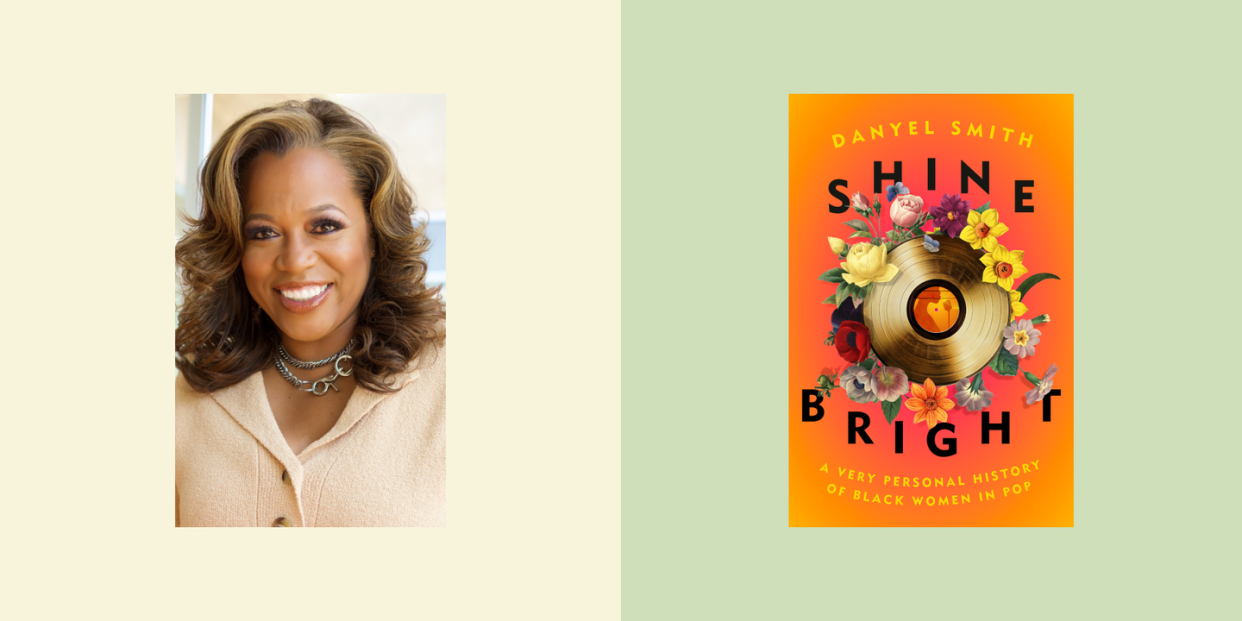Danyel Smith’s “Shine Bright” Is an Ode to Black Woman Singers

- Oops!Something went wrong.Please try again later.
- Oops!Something went wrong.Please try again later.
- Oops!Something went wrong.Please try again later.
- Oops!Something went wrong.Please try again later.
- Oops!Something went wrong.Please try again later.
Danyel Smith’s Shine Bright: A Very Personal Story of Black Women in Pop is an entertaining blend of memoir, music history and journalism. It is also the overdue singing of a Black girl’s song, with perfect pitch. It features several mini-biographies of the most influential and underrated Black women in American culture, from the poet Phillis Wheatley to opera star Leontyne Price; the Dixie Cups, who gave pop music “Chapel of Love” and “Iko Iko” to disco queen Donna Summer. Smith reflects on the songs and the women behind them as she reveals how they inspired her to grow from an ashy-kneed, Huffy-riding rebellious girl to become the first Black person and the first woman editor-in-chief of Quincy Jones’s groundbreaking hip-hop culture magazine, Vibe, at the height of the genre's global ascent.
Smith has said that Shine Bright is the book she was born to write, and her shimmering, witty language is proof that she’s right. Journalists are trained to leave themselves out of the story—but as the subtitle suggests, Shine Bright is a lovely and refreshing exception to that rule. Smith’s encyclopedic knowledge as a self-made pioneer in music journalism combines with extensive interviews, and behind-the-scene stories of some of the biggest cover stories of her era at Vibe to produce an essential and effervescent text for music lovers.
In order to know how and why the book is so singular, you need to know Smith. She was working retail when she got her first freelance assignment in 1989 to review a Natalie Cole performance in Oakland. From there and without a college degree she worked her way up the music journalism food chain, helped by the assistance and mentorship of veteran music journalists. (Smith finally earned her B.A. at age 38.)
This is how Shine Bright ends up being conversational, despite encompassing several decades of nuanced, largely forgotten stories in fewer than 300 pages. There is Dionne Warwick – known recently for her tweets, but not so much for the $2 million her special, “Dionne & Friends” (featuring Elton John, Stevie Wonder, and Gladys Knight), raised for AIDS research. Then there’s Stephanie Mills, the star of the Broadway production of The Wiz, who is, Smith writes, “one of the most beloved, and one of the most underrated Black female recording artists in history.” A former Soul Train host, Marilyn McCoo, also occupies a starring role in the book, as do Diana Ross and Aretha Franklin.
Smith gets and loves Black women and can contextualize the contributions of Black women artists within American pop culture. So we learn not only about Donna Summer, but also about the anti-gay, anti-Black Disco Sucks movement that emerged around her as the music business began to grow more inclusive. There is arguably no one else in music journalism—maybe no one else, period—who could both spill the tea on the Vibe Whitney Houston profile that almost wasn’t, and make space in the book for her gospel-singing, genius mother, Cissy Houston—author of the song Gladys Knight and the Pips made famous, “Midnight Train to Georgia.”
Always Smith aims to underscore the not-so-subtle point that even if we haven't always acknowledged or even been aware of all the ways Black women have been at the center of the sounds, looks and essence of American pop music, there are so many connections, indelible and evident, just waiting to be seen.
Whitney Houston at one point tells a reporter that her mother taught her not only how to sing but how to own it. It may be that her tragic end often overshadows the huge influence Whitney Houston wielded on pop culture, including the soundtracks to The Bodyguard and Waiting to Exhale, but Smith prompts us to remember the latter.
Shine Bright is delicious to read because Smith writes with the swagger of a woman who knows her stuff, and made her way to the top of a profession dominated by white men. Here she shows us how it’s done.
Smith, who is now the creator, producer, and host of the Spotify exclusive Black Girl Songbook (which features Black women artists and gives credit where credit is due), is the first to say that it’s her passion for her subject that’s always driven her:
“To scream at a show,” she writes, “to get drunk on bass vibrations, to sing memorized lyrics loudly in unison with people you don’t even know? It’s the burningest, most crackling current…you’re linked with the world again, golden and new.” It is that energy that propels Shine Bright, which reads like a song you want to replay again and again.
You Might Also Like

